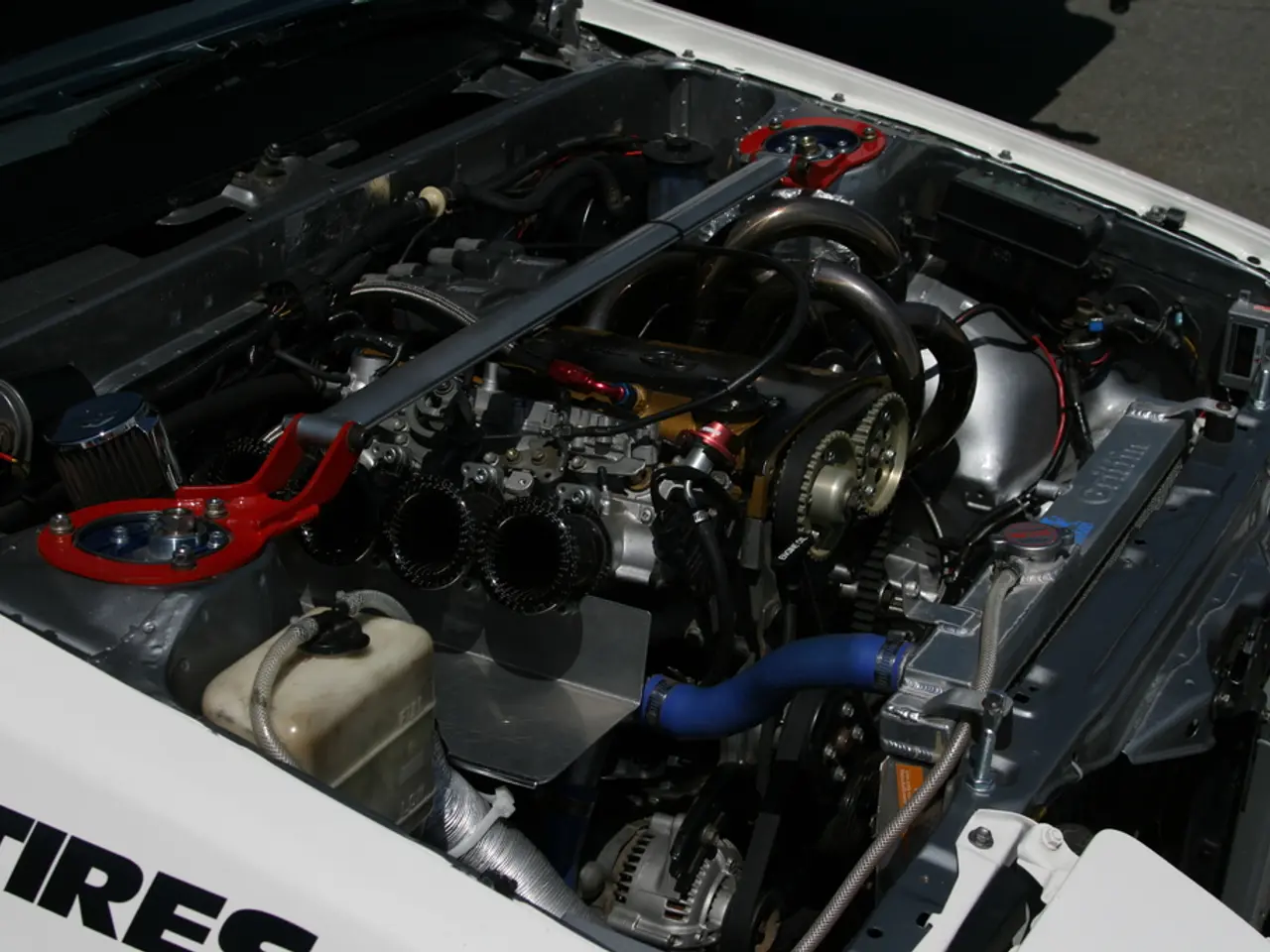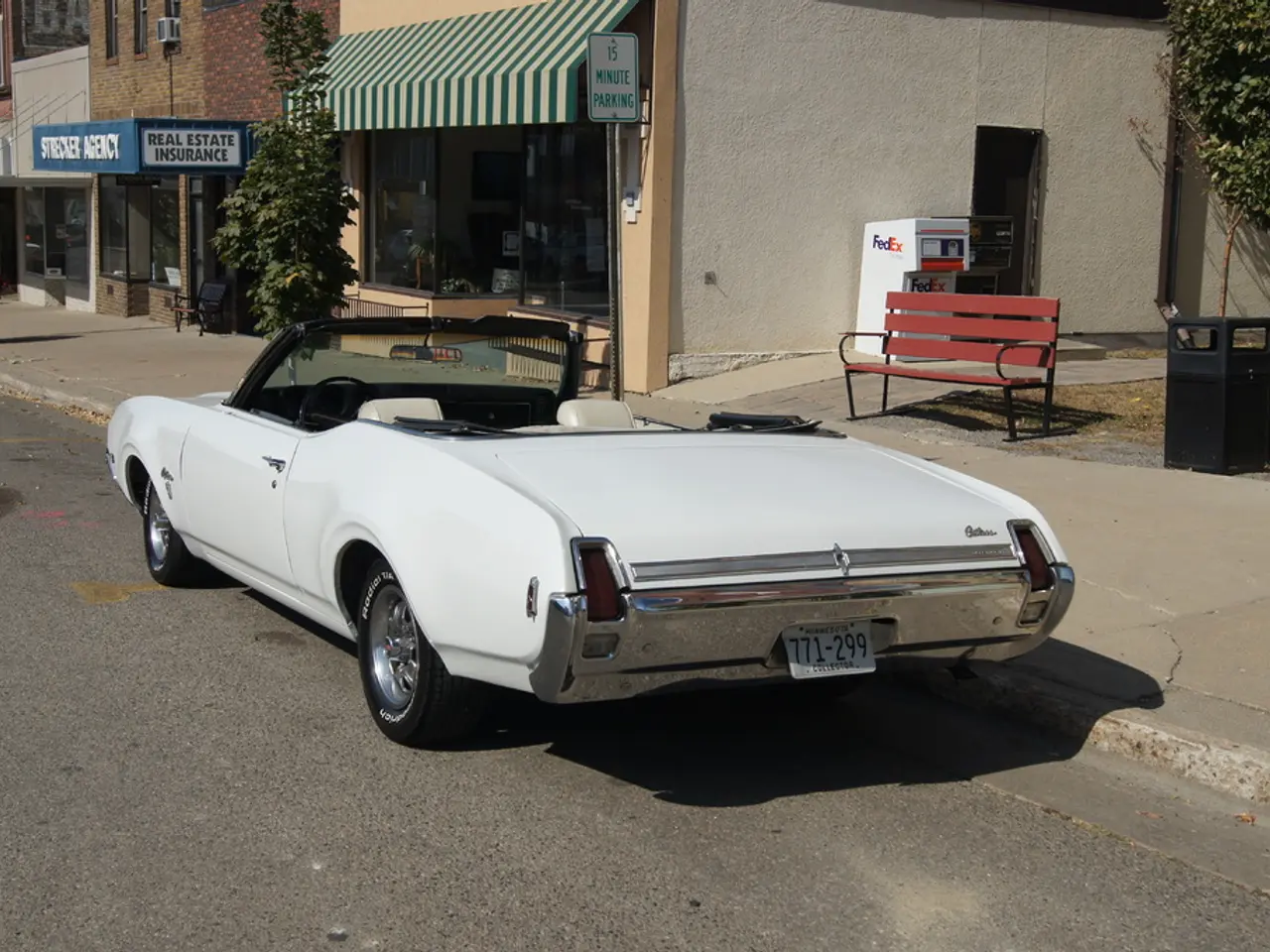Transformed electric vehicle (EV) batteries, once considered waste, now fuel artificial intelligence (AI) appetite in the United States, as leading corporations innovate solutions for sustainable energy storage.
In a significant move towards environmental sustainability, General Motors (GM) and Redwood Materials have joined forces to repurpose used electric vehicle (EV) batteries. This collaboration addresses key long-term challenges and enhances U.S. energy storage solutions.
1. **Second-Life Battery Usage**
Many used EV batteries retain about 70–80% of their original storage capacity even after retirement. The partnership aims to repurpose these second-life battery packs for stationary energy storage systems, extending their useful life and reducing waste.
2. **Grid-Scale Energy Storage and Resilience**
The alliance plans to deploy energy storage systems combining new U.S.-manufactured batteries from GM and repurposed second-life EV packs. This supports the growing demand for grid-scale and backup battery systems, essential infrastructure due to rising electricity demand and the increasing reliance on renewable energy sources.
3. **Domestic, Sustainable Energy Infrastructure**
The partnership focuses on U.S.-built batteries and domestic integration expertise, strengthening the domestic battery supply chain and energy independence. Redwood Materials' major installation near Reno, Nevada, uses repurposed batteries to power microgrids and data centers continuously, demonstrating scalable, clean energy storage solutions made and deployed domestically.
4. **Environmental Impact Mitigation**
Repurposing EV batteries for energy storage reduces the need for immediate recycling or disposal, lessening environmental impacts associated with raw material extraction and waste processing. The extended battery life contributes to a circular economy in the EV sector, reducing greenhouse gas emissions and resource depletion.
The GM-Redwood alliance creates a scalable, economically viable model that integrates EV battery technology into energy storage solutions. This approach supports the EV industry's sustainability by reducing battery waste and fosters the U.S. energy sector's transition towards resilient, clean, and homegrown power systems.
The initiative is a key part of GM's sustainability strategy, helping manage the approaching wave of first-generation batteries. A project utilizing the plan is already active in Sparks, Nevada, where repurposed GM batteries power a 63 megawatt-hour microgrid. The partnership provides a sustainable and economical alternative to traditional battery disposal methods.
- With 70-80% of their original storage capacity still viable, the collaboration between General Motors (GM) and Redwood Materials aims to repurpose used electric vehicle (EV) batteries into stationary energy storage systems for a second life, thereby reducing waste and promoting innovation in environmental-science.
- The partnership is developing a strategy to deploy energy storage systems that combine new batteries manufactured by GM and repurposed EV packs. This approach caters to the growing demand for grid-scale and backup battery systems in technology-driven industries, ultimately securing energy storage solutions and ensuring industry resilience.
- The renewed focus on U.S.-built batteries and domestic integration expertise in the GM-Redwood alliance is set to fortify the domestic battery supply chain and energy independence, furthering the pursuit of cleaner, more sustainable energy in finance and industry.
- By repurposing used EV batteries for energy storage instead of immediate recycling or disposal, the partnership is mitigating environmental impacts such as those associated with raw material extraction and waste processing. This circular approach to resource management in the EV sector contributes to decreased greenhouse gas emissions and more prudent use of resources, fostering energy sustainability overall.




